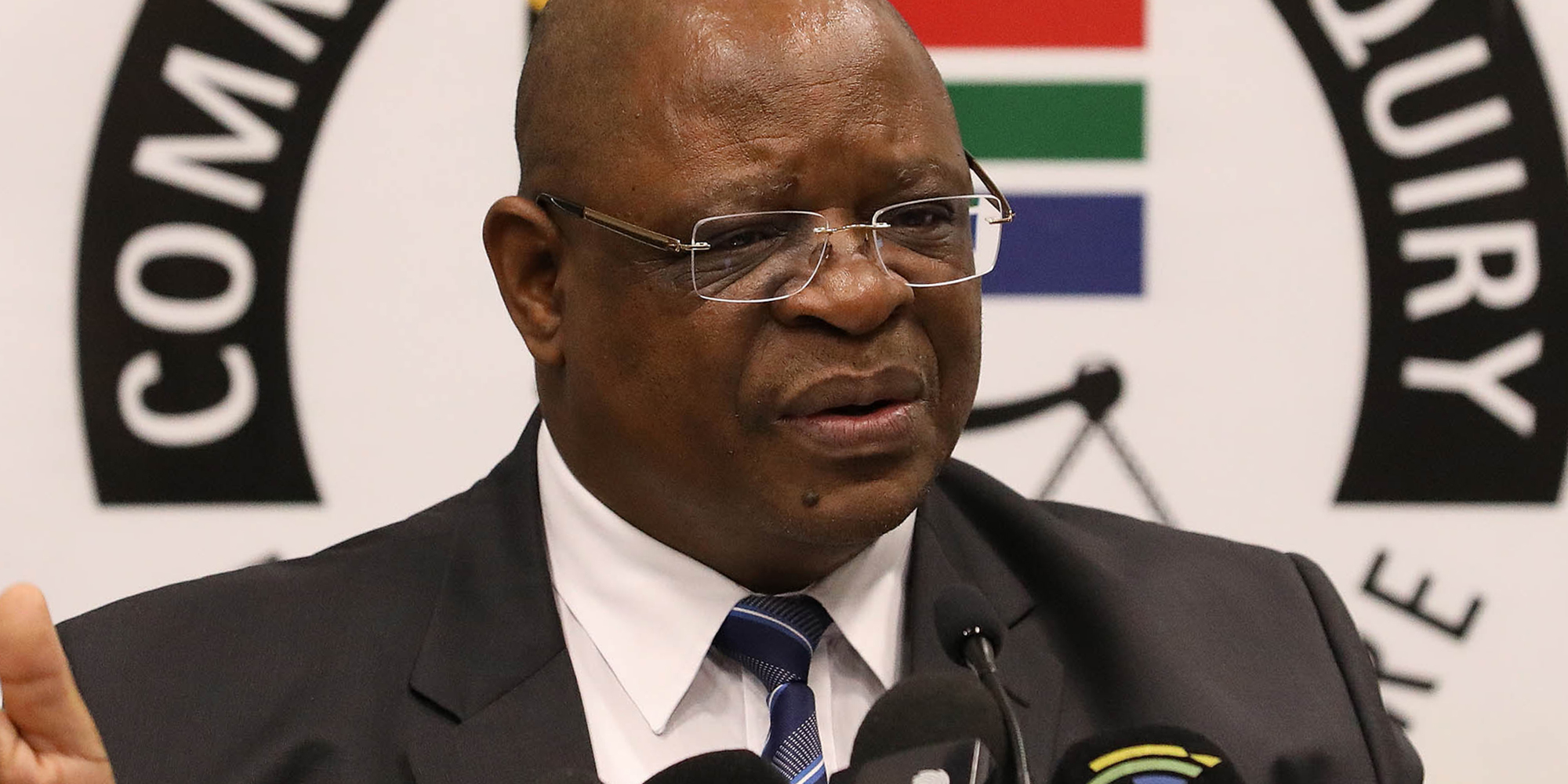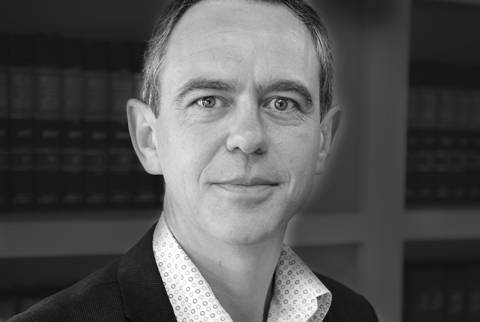Last week, the Zondo Commission released the third volume of its report into State Capture. The volume (consisting of more than 900 pages) provides exhaustive details of the generally corrupt relationship (Judge Hilary Squires might have called it a “mutually beneficial symbiosis”) between the Bosasa group of companies, on the one hand, and the ANC, and ANC and ANC-aligned public figures, on the other. Some of those implicated in the report (as well as their cheerleaders) have latched on to the fact that the report does not make any definitive findings on their criminal guilt and does not instruct the National Prosecuting Authority (NPA) to prosecute any of them, with some even falsely claiming that the report exonerates them.
This response exploits the worrying acceptance by many South Africans of the judicialisation of public morality — at least as far as some public figures are concerned. The self-serving fiction on which the judicialisation of public morality is based — that only criminal courts can (and are permitted to) hold public figures implicated in wrongdoing accountable — disempowers those voters who are persuaded to cede their democratic responsibility to hold politicians and other public figures accountable to a dysfunctional criminal justice system and to the courts.
Such responses also exploit public confusion about the role and legal capacity of the commission. Specifically, such responses ignore the fact that the commission is not a criminal court and does not have the power to find anyone guilty of a criminal offence, and that the commission is not permitted to order the NPA to prosecute anyone — in the same manner that the Public Protector is not permitted to do so — as that would interfere with the NPA’s constitutionally guaranteed independence.
Of course, the failure of the Hawks to build winnable criminal cases against a significant number of corrupt politicians and other public figures involved in criminal wrongdoing and the endless delays in the prosecution of those who have been charged (often caused by unscrupulous lawyers who abuse the legal process), are of great concern. But of equal concern is the fact that politicians and other public figures rely on the dysfunction of the criminal justice system (a dysfunction they caused), and on the weakness of other forms of public accountability linked to voter sentiment to avoid public accountability for their criminal and other shockingly immoral actions.
In fact, the State Capture Commission report is far more damning than generally appreciated. To understand why this is so, one needs to understand the significance of the inquisitorial process followed by the commission. One also needs to have a closer look at the evidence uncovered by the commission, and the often shockingly dishonest testimony of those implicated in wrongdoing.
And last, one needs to understand that political elites try to escape accountability for their actions by arguing that it is constitutionally impermissible and deeply unfair to allow voters to assess their fitness for public office or other positions of influence, and by demanding that this fundamental democratic responsibility be delegated to judicial officers. The latter demand is particularly galling, given the fact that the criminal justice system was systematically weakened to protect politicians from prosecution.
The first thing to understand is that one of the main tasks of a commission of inquiry of this kind is to find out what happened, before making recommendations based on what it found to have happened. The commission functions in an inquisitorial manner, conducting its own investigations and digging up and assessing the evidence before making findings about what had happened. It does not function like a court of law, where the prosecution (in criminal cases), or the applicants (in civil matters) present their evidence to the presiding judge, who then makes findings of fact and law in accordance with the required standards of proof.
https://www.dailymaverick.co.za/article/2022-03-03-the-people-and-businesses-the-state-capture-commission-recommends-for-prosecution-by-the-npa/
Its task is also different from that of the police investigators and prosecutors, as its focus is on finding the truth (“what happened”), and not primarily on securing criminal convictions in accordance with the strict procedural requirements and burdensome onus applicable to a criminal trial.
In a criminal trial, the primary aim of an accused person is to prevent a conviction and to stay out of jail, not to convince the court or the public that they are innocent. (This is why some accused persons will invoke their right against self-incrimination and will refuse to testify, despite the fact that this invariably makes them look as guilty as hell, as it is more important to stay out of prison than it is to be thought innocent. For the same reason, Jacob Zuma has never provided his version of what happened with the bribe secured on his behalf by Schabir Shaik, or of his involvement in State Capture.)
It is therefore telling when those the commission implicated in wrongdoing invoke these criminal trial strategies and other technical arguments in their own defence, without any attempt at challenging the truthfulness of the findings of the commission. This approach is often used to convince the public that what actually happened is irrelevant; that the immoral or criminal acts of those implicated are irrelevant; that the dishonesty and greed of those who testified before the commission are irrelevant; and that the only thing that matters is whether they will be charged and convicted of a criminal offence.
Of course, if they are charged and convicted, they are likely to argue that it does not matter either, because, so they may allege, they are victims of a political conspiracy cooked up by people who are never identified.
Because the task of the commission is primarily to find out what happened, not to secure the prosecution and imprisonment of wrongdoers, implicated individuals who act like criminal defendants trying to stay out of jail, who complain about an unfair process and conjure up conspiracies, but studiously avoid talking about what actually happened, signal to the public that they have much to hide. This may not be of much relevance to a presiding judge in a criminal trial, but it should be of immense importance to voters whose task it is to hold politicians and their parties accountable for their immoral actions.
In other contexts, most people would accept this distinction between credible evidence about what actually happened, on the one hand, and whether someone was convicted for what happened, on the other. For example, in 2017, an inquest found that anti-apartheid activist Ahmed Timol, who died in detention in 1971, had not committed suicide, as the apartheid police officers had claimed, but had “died as a result of having been pushed” by members of the Security Branch, including officer Joao Rodrigues. Rodrigues was prosecuted for murder, but died before the trial could be concluded. But the fact that he had not been convicted of murder does not nullify the findings of the inquest. One could make a similar argument about FW de Klerk’s involvement in ordering the murder of the Cradock Four.
Many individuals implicated in the commission’s report will argue that it would be unfair for the public to judge them based on what the commission found had happened, because the commission may have made mistakes.
Those individuals who challenge specific factual findings and conclusions about their alleged criminal and other immoral behaviour, not by invoking technical arguments available to an accused person in a criminal trial, but by advancing arguments and presenting facts aimed at convincing the public that what the commission found happened did not happen, should be given a fair chance to do so.
The public should also keep an open mind and remain persuadable by such responses. But few have made any attempt to do so, leaving the commission’s actual findings about what happened undisturbed. Their failure to do so, I would argue, justifies them (and the political parties they are aligned to) being judged harshly by the public.
The fact that criminal guilt is not and should not be the yardstick the public use to assess the fitness of politicians and other public figures to hold any position of authority also means that it is important to focus on other aspects of the State Capture Commission report not directly linked to their possible criminal guilt. In this regard, the parts of the report that expose the mendacity and immorality of some implicated individuals are of particular importance.
It is (or should be) impossible to read the report and not to conclude that even some implicated individuals who might never be convicted of any criminal offence are deeply dishonest and immoral and thus not fit to serve in any position of authority. For example, any reasonable person who reads those parts of the latest volume of the report that describe how Gwede Matashe misled the commission (claiming he could not remember if he had owned a red Toyota Land Cruiser and that he hardly knew the Watson brothers), would find it hard to imagine that Mantashe is fit to hold any kind of office. A reasonable person would also conclude that the failure to remove him from the Cabinet will fatally taint President Cyril Ramaphosa and the governing party he leads.
In a constitutional democracy, voters have the power to hold political parties accountable for their immoral actions — even when this does not amount to criminal activity (there is often a grey area between these two situations). They also have the power to hold individuals aligned to political parties accountable through their political parties. Voters should not be fooled by self-serving elites and cede this power to the Hawks, the NPA and the courts.
The fact that many voters seem to do so is probably a feather in the cap of Jacob Zuma and his handlers at the time he was first vying for the presidency of the ANC. By popularising the false claim that individuals have no right to judge the behaviour of (some, but not other) public figures and that only courts can do so because the public has a duty to presume individuals innocent until they are convicted of a criminal offence, they created a powerful weapon in the hands of unaccountable elites.
And, in Kafkaesque fashion, they continue to claim to do so in the name of the people, the very people whose power to hold them accountable they have done everything to neutralise. DM
This article is more than 3 years old
South Africa
Zondo exposes callous, corrupt people now shamelessly performing legal contortions
In a slightly saner political environment, the report of the Commission of Inquiry into State Capture would have ended the political careers and/or public standing of most of those implicated by the report in fraud, corruption, money laundering and other dishonest and immoral behaviour. It would also have ended the electoral viability of the ANC. That this has not — and probably will not — happen, can in part be blamed on the partly successful judicialisation of public morality in SA.





